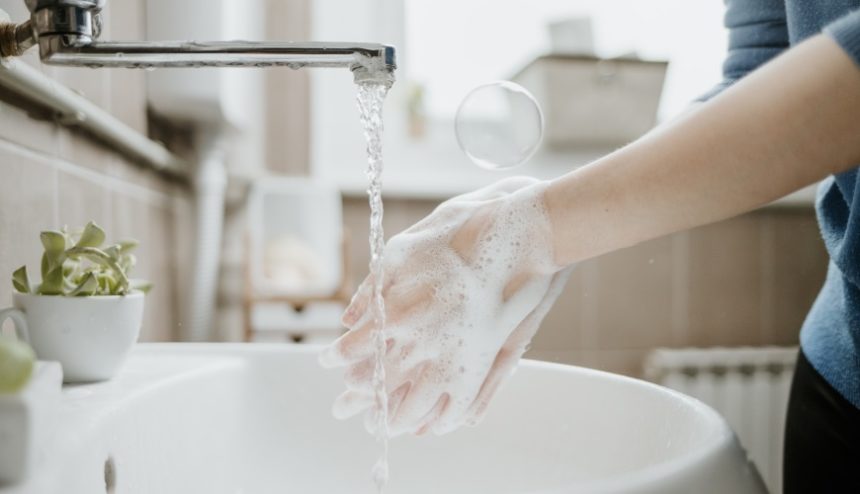Post Updated 10/19/21
COVID spreads from person to person through respiratory droplets produced when an infected person coughs or sneezes or when simply having a conversation within 6 feet of another person. These droplets can land in the mouths or noses of those who are nearby. It is gross, but it happens all the time, multiple times a day. The common cold, influenza, and other sicknesses are passed from person to person in the same way. (Read how masks are effective when you can breathe through them in the bullets below.)
These precautions are key in keeping you and your family healthy – and preventing the spread of COVID-19 if someone is symptomatic or an asymptomatic carrier (no symptoms but does have the virus). Just like we learned when we were children, wash your hands frequently to get rid of germs! It works.
What can you do to prevent getting or spreading COVID-19?
- Wash your hands often and thoroughly for at least 20 seconds with soap and water. Use an alcohol-based hand sanitizer when soap and water are not readily available.
- Cover your cough and sneeze every time. Use a tissue and throw it away, or sneeze into your elbow if you must (never your hand). Then wash your hands again and anything nearby that may have virus particles on them.
- Don’t touch your face, especially your mouth, nose, or eyes.
- Wipe down surfaces, especially ones frequently touched, with soap and water or a regular household disinfectant. Your standard cleaning supplies will kill the coronavirus.
- Wear a cloth or disposable face mask. The respiratory droplets that carry the virus from person to person – including COVID-19 and other respiratory illnesses such as influenza, RSV, and colds – are much larger than the oxygen molecules that you breathe in and carbon dioxide that you breathe out. Respiratory droplets cannot pass as easily through a properly designed and properly worn mask.
- Stay home if you are sick or if you are caring for a sick family member, and separate yourself from others in your home when you can. If everyone masks at home when they are near someone who is sick, it will help prevent spreading it within a household. If possible, use a different bathroom to avoid contaminating faucets, door handles, and more.
- Get tested as soon as you have symptoms or had a close contact with someone who is positive, and quarantine yourself from others while awaiting results.
- Get vaccinated. To get your first or second dose, call Glenwood Medical Center. You are encouraged to get the vaccine whenever you are able.
Testing and Treatment
If you are feeling ill with COVID-19 symptoms or have had close exposure to someone who tested positive for COVID-19, please Glenwood Medical Center at 320.6345157 for further instructions.
Most people can recover at home and do not need medical attention for their illness. For some people meeting current FDA criteria, healthcare providers may recommend you receive an antibody treatment to help prevent severe illness, hospitalization, and death. These medications are available at GRHS and other hospitals. Learn more about Monoclonal Antibodies.
Stay Informed
Because this is a new virus, there is still more to be learned. Updates given by the Centers for Disease Control and Prevention (CDC) and the MN Department of Health will continue to change and evolve. There is more to learn about transmissibility and severity. Stay informed by going to the CDC website at www.cdc.gov/coronavirus/2019-ncov.


